Blackfield in the New Forest has a Tesco Express on one side of Hampton Lane and, in a few weeks’ time, will have a Sainsbury’s Local on the other side. But anyone trying to find the Hampshire Yeoman, a large detached pub that had developed a raucous reputation in its 60 years, will be disappointed. For last autumn, Punch Taverns granted Sainsbury’s a 15-year lease on the Hampshire Yeoman with the opportunity to break the lease at the 10th year. The last pub in the village is no more.
It’s a scene that’s being played out across the UK with the nation’s pubs closing at a rare rate of knots thanks to the combination of rising alcohol duty and the supermarkets offering cut-price booze. The Campaign for Real Ale’s (CAMRA) analysis of which supermarkets are replacing Britain’s pubs reveals the full extent of the cultural shift from having a pint down the local to buying some cans from the Sainsbury’s Local. Of the more than 200 pubs that were converted to supermarket c-stores between January 2010 and last November, Tesco was responsible for 130 Sainsbury’s 22 Costcutter, The Co-op Group and Asda together 54.
Although only about 16 of the 450 pubs that closed between March and September last year are projected to become convenience stores according to the latest estimates from property agents, it’s this minority that has been met with the most vociferous neighbourhood protest - not least because the supermarkets do not need to gain permission from local authorities to convert them into shops. But the reduced number pencilled for conversion reflects the fact most of the good sites have already gone. So are the days of locals turning into Locals drawing to a close?
The short answer is: not quite yet. Despite the dearth of available sites and the best efforts of the NIMBYs, the supermarkets still often get their own way. In the case of the Hampshire Yeoman, all Sainsbury’s had to do was to promise New Forest District Council it would have fewer parking places than the former pub to placate 15 objectors. No one objected to the fact the property was to be extended at the back, and planning consent was granted.
last orders
- Between January 2010 and November 2012, CAMRA reported that more than 200 pubs across the UK were converted into c-stores
- Savills, which is often asked to dispose of pubs in receivership or administration, puts convenience store conversions as high as 20%
- The pub department of Christie & Co analysed its 500 pub sales last year and found that only 6% became convenience stores. Most - 62% - were sold to buyers who continued to run them as pubs 18% became flats or houses 6% offices 4% other licensed use and 4% restaurants
Favourable planning laws
This is why pubs are so attractive to the multiples. The argument runs that if an establishment has been selling alcohol, it has the right to sell anything else. Only changes in appearance or the installation of air-conditioning need planning consent. Plus, if the sales area is less than 3,000 sq ft, opening hours are unrestricted and the store can stay open all day Sunday (unlike units larger than 3,000 sq ft, which must comply with Sunday trading laws and open for only six hours).
Despite numerous attempts by the NIMBYs to derail such schemes, community protests against c-store pub conversions are often a waste of time. At least that’s the experience of the locals who used to drink at the Three Elms pub in Clewer, near Windsor, which has just reopened as a Tesco Express.
The store backs on to the home of Maureen Carlton. She collected 250 signatures against the Tesco Express, but only won minor concessions. Tesco agreed not to install an ATM to stop too many motorists from stopping and also had to make sure the air-conditioning plant purred quietly, but everything else - including the illuminated sign - was allowed.
At the decisive meeting of Windsor’s urban development control panel last autumn, Councillor Simon Meadowcroft said that if the changes to the Three Elms site were not permitted, Tesco would only waste taxpayers’ money by going to appeal.
Elsewhere, communities have not been quite so resigned to the replacement of their pubs by c-stores. In Weston-super-Mare, councillors of North Somerset Council bowed instead to the 2,800 protestors who signed a petition to prevent Enterprise Inns selling the Bristol House Inn, for conversion into a Tesco Express.
The sale depended on the council granting planning permission to extend the kitchens of the pub to create a c-store. In September, the council unanimously refused consent. That wasn’t the end of the story, however. Enterprise then turned defeat into a victory of sorts. In December, it appointed David Willey, a publican with more than 20 years’ experience, to run the Bristol House Inn, but only granted him a “tenancy at will”, which means that either side could end the arrangement after giving six weeks’ notice.
Three months into his tenancy, Willey says: “It’s been OK, but it’s a very difficult time of the year to open a pub when the weather is so cold. I’m still plugging away, and I shall continue to do so as long as I break even.” Nevertheless, he admits that if Enterprise decided it wanted to sell to Sainsbury’s Local “this time, I couldn’t say ‘no’.”
Sometimes even the retailer will walk away - as Tesco did in the Kent village of Herne, near Herne Bay, in March last year, despite the fact no planning consent was necessary to enlarge the premises before conversion. Villagers protested against the conversion of the Upper Red Lion because they believed that the Village Stores would be put out of business. They failed to raise the purchase price of £250,000, but a housebuilder bought the pub and is now converting it into four flats. A Tesco spokesman says traffic issues coupled with the local community’s concerns prompted it to abandon its plans. “We had a look at it. There were a couple of reasons why it was better to walk away,” he says. “We consulted with the local community and took on board what they wanted.”
This is very much the exception that proves the rule, however, and the next battle involving Tesco takes place on 12 March when the London Borough of Lambeth’s planning committee meets to consider whether the retailer should be allowed to install a shop front in the George IV pub in Brixton Hill.
The listed building, which operated as a music venue, will also need permission to erect a Tesco sign and install plant and machinery at the back. There are nearly 1,800 signatures on a petition against the plans.
When the pub closed nine months ago, it was trading as the Music Bar, which maintains its manager Sandra Smith, was always up to date in paying the rent when the owner decided to sell. “We just weren’t allowed to carry on,” she says. “It was such a shame, because we really turned that place around. But when it was put up for sale, only Tesco was interested.”
This is the argument commonly employed by supermarket operators, pubcos and the agents who act for them. A Sainsbury’s spokesman says the retailer has never been defeated by a protest group that wanted to run the pub themselves.
Kevin Marsh, director of leisure and the licensed trade at the agent Savills, which acted for Punch in the sale of the Hampshire Yeoman to Sainsbury’s Local, adds of the more fractious Upper Red Lion closure: “The irony here is that the locals shot themselves in the foot. I don’t like to see pubs closing, but if the residents had used the pub, it would have stayed in business.”
up for sale
In the first 17 weeks of this financial year, Enterprise Inns sold 88 redundant pubs for £32m. A further 34 sales are being negotiated worth a further £17m. Enterprise will not say how many of these were bought by developers or by the supermarkets themselves. Punch Taverns also refuses to reveal how many of its pubs have been converted to c-stores. However, a spokeswoman does confirm that 95% of the redundant sales are made with the licence still in place
Job creation
Rather than being the villains of the piece, the supermarkets point to c-store openings as a good way of creating local jobs. The Tesco spokesman cites the example of the Three Elms at Clewer, where the company employs 19 people.
The Sainsbury’s spokesman is similarly bullish. “We are absolutely committed to creating jobs. Each Sainsbury’s Local creates in the region of 20 to 25 new jobs, which are recruited locally.”
In the minds of planners, the creation of new jobs nearly always triumphs over loss of amenities. Yet pub lovers are campaigning to have pub-to-convenience planning rules tightened. CAMRA has been lobbying hard to get the government to change planning laws, but so far the appeal has fallen on deaf ears.
“Weak and misguided planning laws and the predatory acquisition of valued pub sites by large supermarket chains, coupled with the willingness of pub owners to cash-in and sell for development, are some of the biggest threats to the future of Britain’s social fabric,” says Mike Benner, CAMRA chief executive. “For years, large supermarket chains have shown a disregard for the wellbeing of local communities, gutting much-loved former pubs in areas already bursting with supermarket stores.”
Those heeding CAMRA’s call are mainly local authorities in affluent areas, like the Royal Borough of Kensington & Chelsea and Cambridge - after all, redundant pubs can make beautiful homes.
Cambridge City Council has even gone as far as drawing up a delaying strategy to prevent pub conversions to any other use. When the restrictions are incorporated into the local plan, the pub owner must market the pub for a year before selling it for conversion. Even then, the owner must prove that there will not be a loss to community facilities.
When the year is up, the supermarkets will still not necessarily be at the top of the list of buyers, says Steve Rodell, head of retail at Christie & Co. “Of every hundred pubs that come on to the market, only three or four are suitable for retail conversion,” he points out.
But that’s three or four too many for some people, including health secretary Jeremy Hunt and former defence secretary Liam Fox. Plans have been tabled to open Tesco Express stores on former pub sites in both Tory MPs’ constituencies and they have reportedly written to communities secretary Eric Pickles asking him to tighten planning laws to protect small shopkeepers.
Whether their intervention will has any impact remains to be seen. But with the multiples’ push into c-stores showing little sign of abating and 18 pubs closing every week, the future of this great British institution is far from secure, warns Benner.
“Unless action is taken by the government to address obvious loopholes in planning legislation, more local communities will be forced to give up their local pub without a fight, and seeing the pub signs of Red Lions and Royal Oaks being corporately graffitied over by supermarket empires will become an all-too-common sight.” Albeit one many would argue is preferable to a derelict building.
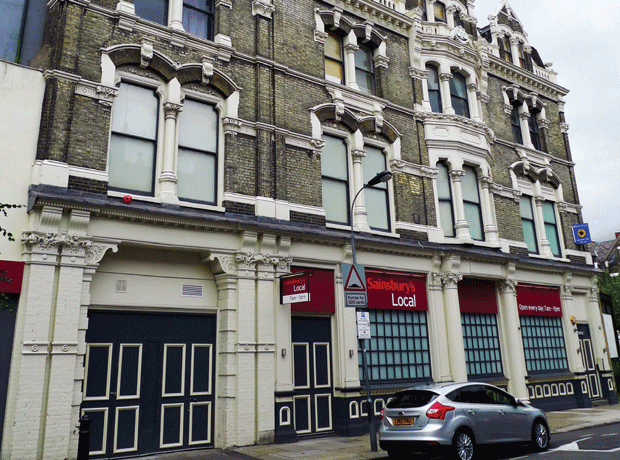
The grocery store of the future
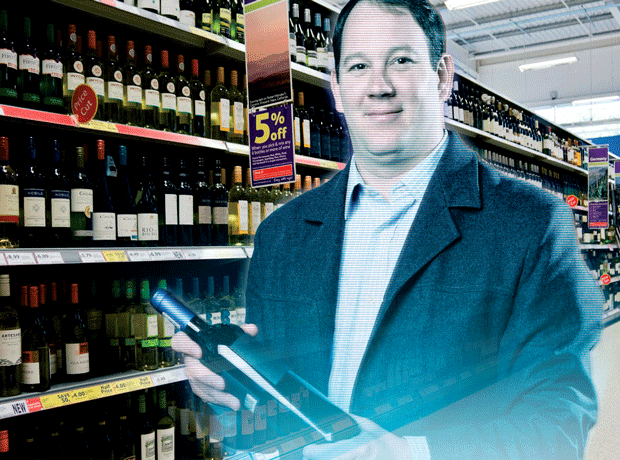
It may look distinctly low-tech through a modern lens, but the world’s first supermarket was revolutionary in its time…
- 1
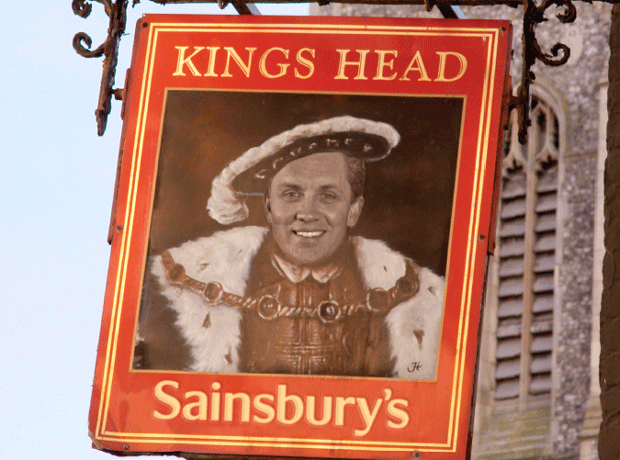 Currently
reading
Currently
reading
How supermarkets are snapping up the nation's pubs
- 3









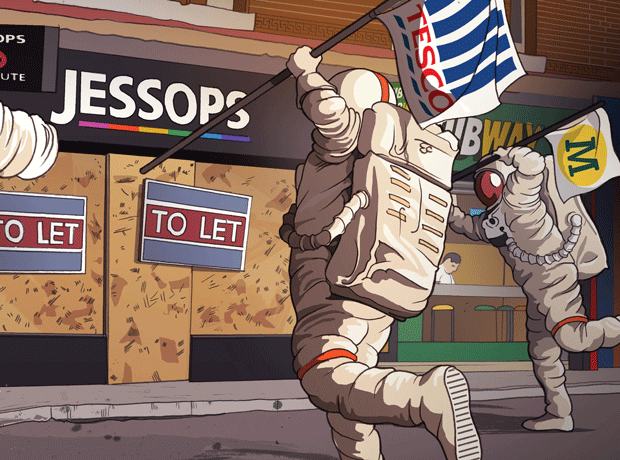

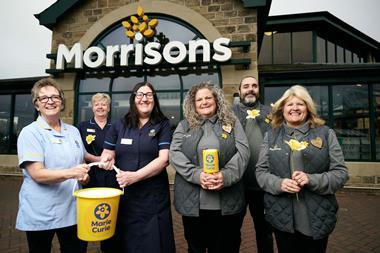



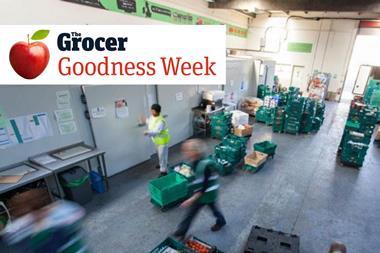


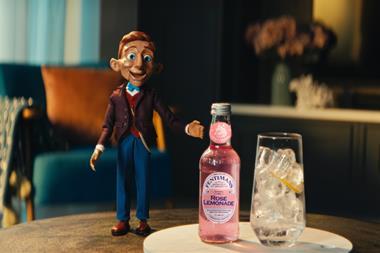




No comments yet